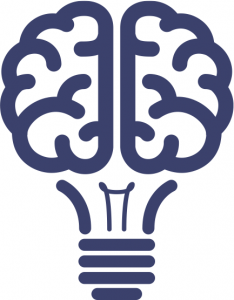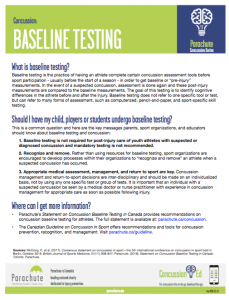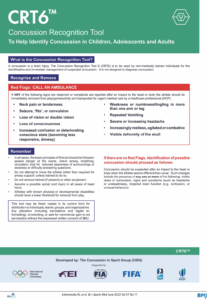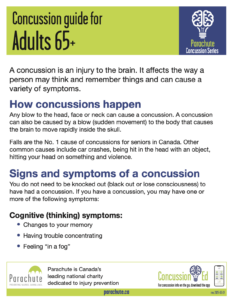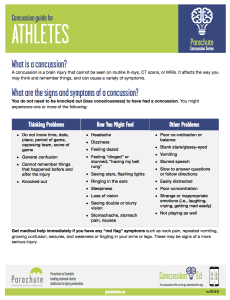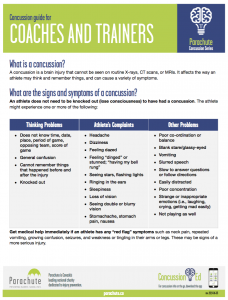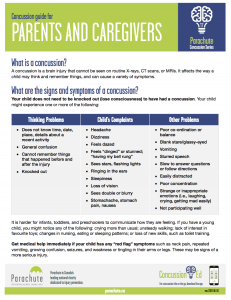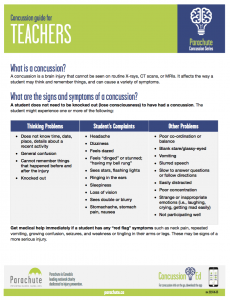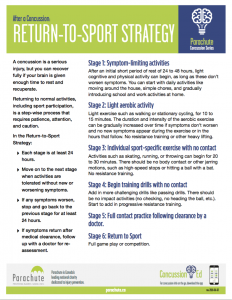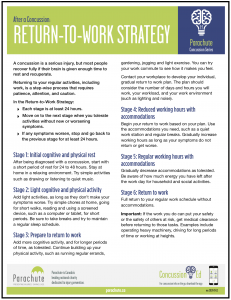A concussion is a brain injury that can’t be seen on routine X-rays, CT scans or MRIs. It affects the way a person may think and remember things, and can cause a variety of symptoms. Any blow to the head, face or neck, or a blow to the body that jars your head, could cause a concussion.
Signs and symptoms of a concussion
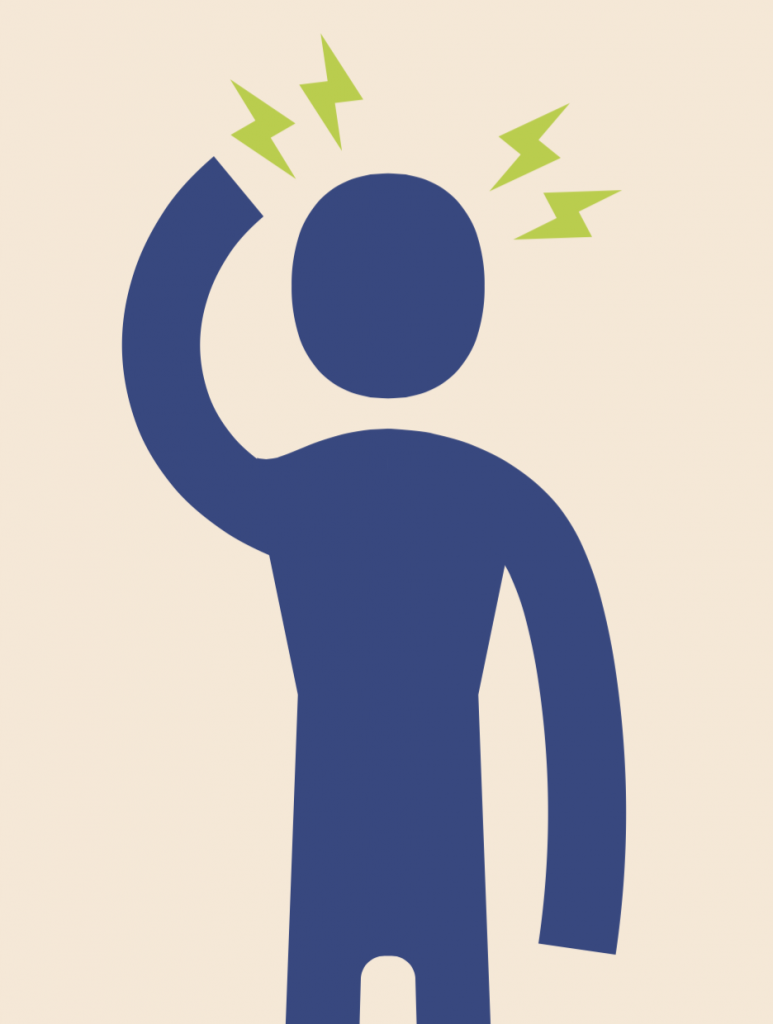
Physical
- Headache
- Pressure in the head
- Dizziness
- Nausea or vomiting
- Blurred vision
- Sensitivity to light or sound
- Ringing in the ears
- Balance problems
- Feeling tired or low energy
- Drowsiness
- “Don’t feel right”
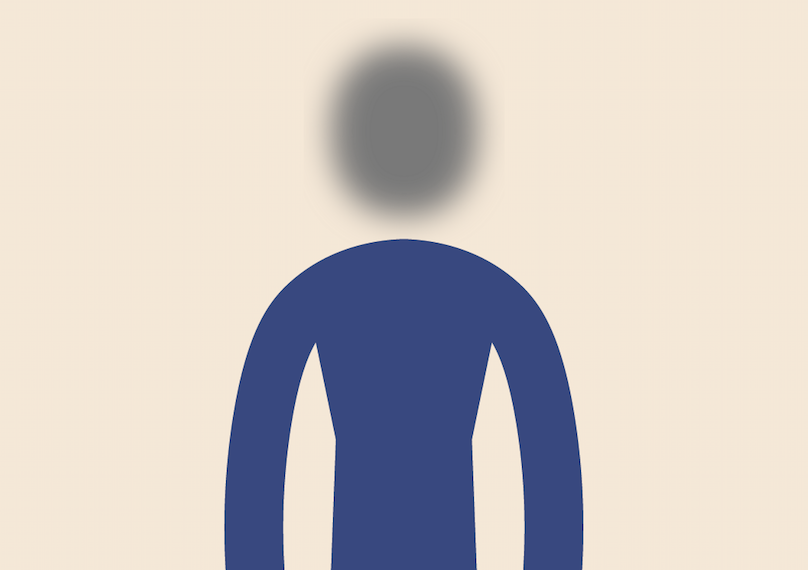
Cognitive
- Not thinking clearly
- Feeling slowed down
- Feeling like “in a fog”
- Problems concentrating
- Memory problems
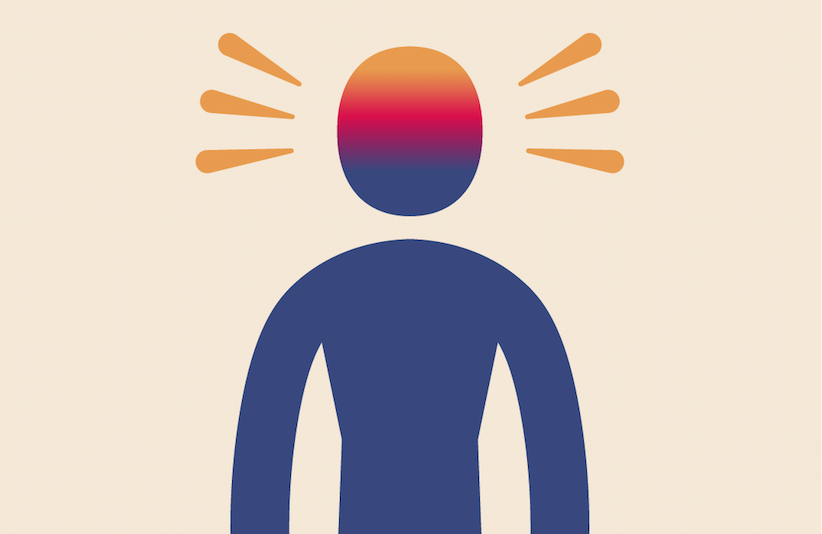
Emotional
- Easily upset or angered
- Sadness
- Nervous or anxious
- Feeling more emotional
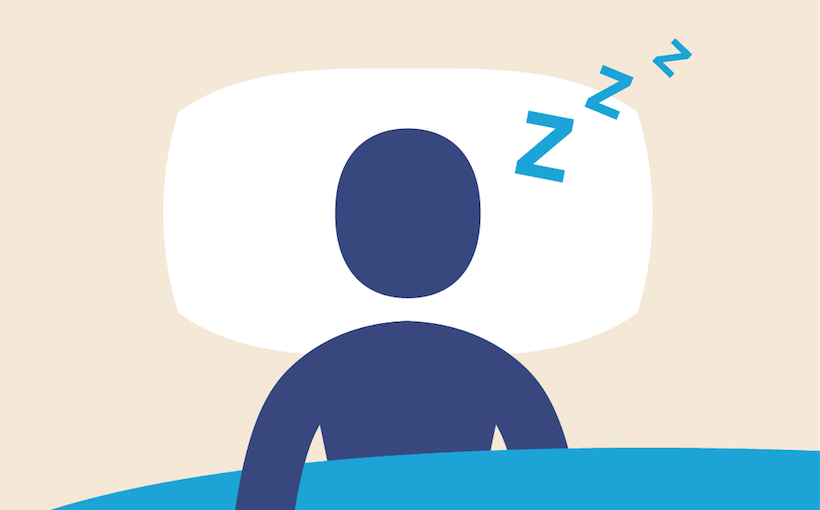
Sleep-related
- Sleeping more or less than usual
- Having a hard time falling asleep
What to do if you suspect a concussion
In all suspected cases of concussion, the person should stop the activity right away. Continuing increases their risk of more severe, longer-lasting concussion symptoms, as well as increases their risk of other injury.
Anyone with a suspected concussion should be checked out by a medical doctor.
Red flags
- Neck pain or tenderness
- Double vision
- Weakness or tingling in arms or legs
- Severe or increasing headache
- Seizure or convulsion
- Loss of consciousness (knocked out)
- Deteriorating conscious state
- Vomiting more than once
- Increasingly restless, agitated or combative
- Growing confusion
If any red flag symptoms are present, call an ambulance right away. These may be signs of a more serious injury.
Concussion treatment
General recommendations for concussion recovery include a short period of rest (24 to 48 hours), followed by a gradual return to activity under the supervision of a medical professional. Caring for a concussion can involve a variety of treatments to manage symptoms and a team of health professionals, depending on the symptoms and how a person’s condition improves.
Concussion healing time varies
The symptoms of a concussion usually last up to four weeks, but may last longer. In some cases, it can take weeks or months to heal. If a person has had a concussion before, it may take them longer to heal the next time.
Concussion prevention
The best way to prevent concussions is to prevent the incidents that cause concussions, such as falls and motor vehicle collisions.
Concussion prevention in sports and recreation includes:
- Respecting and following the rules of the sport or activity, especially rules that are in place to reduce hits to the head
- Wearing properly fitted equipment, such as the right footwear to prevent falls
- Training, practising and playing in ways that are appropriate for your skill level
- Developing and enforcing policies and rules in sport to prevent injury, such as minimum bodychecking age in hockey and limiting contact practice in youth football. According to current research, these kinds of policies are the most effective way to prevent sport-related concussions.
Helmets are an important piece of protective equipment for many sports and activities. Helmets can prevent serious head injuries. However, helmets are not proven to prevent concussions.
Mandatory baseline testing not recommended
Baseline testing is the practice of having an athlete complete certain concussion assessment tools before sport participation – usually before the start of a season – in order to get baseline or “pre-injury” measurements. In the event of a suspected concussion, assessment is done again and these post-injury measurements are compared to the baseline measurements. The goal of this testing is to identify cognitive differences in the athlete before and after the injury. Baseline testing does not refer to one specific tool or test, but can refer to many forms of assessment, such as computerized, pencil-and-paper and sport-specific skill testing.
Baseline testing is not required for post-injury care of youth athletes with suspected or diagnosed concussion. Rather than using resources for baseline testing, we encourage sport organizations and schools to develop processes within their organizations to recognize and remove anyone with a possible concussion, ensure they get medically assessed and support them to return to school and sport safely.
